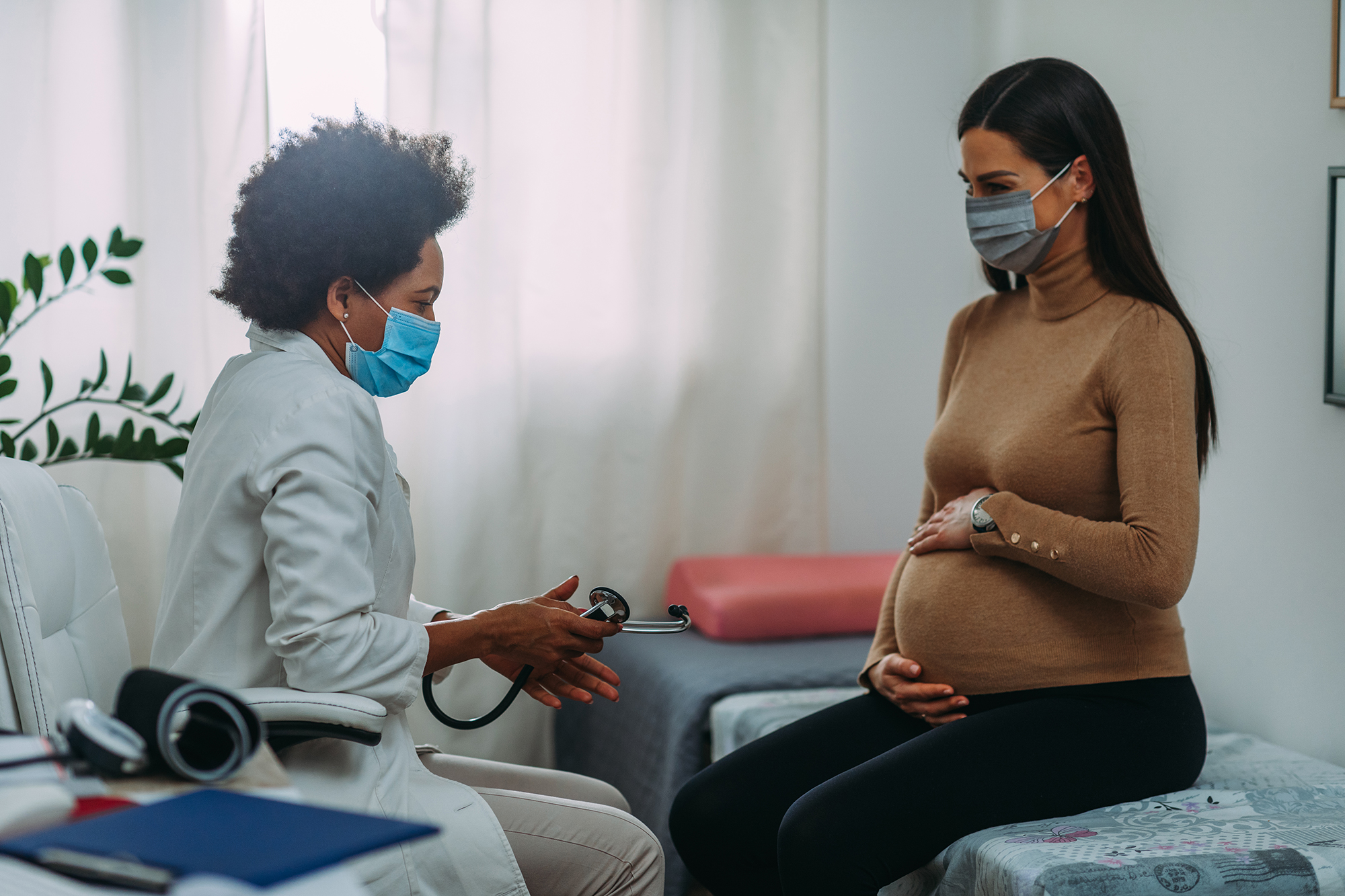
Co-written by Diana W. Bianchi, M.D., NICHD Director, and Janine Clayton, M.D., Director, Office of Research on Women’s Health, Office of the Director, NIH
For many of you, this past weekend likely had its share of greeting cards, flowers, video calls, and, perhaps, even a tasty brunch celebrating the special maternal figure(s) in your life. Maybe it was your mother, grandmother, or another special person who always looked out for you when you were growing up. For others, this past weekend may have been bittersweet—a time to remember a mom or someone special who is no longer with you, but who left an indelible mark on your lives, giving you joy, wisdom, and resilience. Mother’s Day is a wonderful holiday filled with love and appreciation.
Sadly, hundreds of children each year in the United States do not get the chance to celebrate Mother’s Day with their moms because of a growing maternal health crisis. In a wealthy nation like ours, a healthy pregnancy and childbirth should be a given, but it’s not. According to the Centers for Disease Control and Prevention (CDC), nearly 700 women die each year from complications from pregnancy or giving birth. In addition, American Indian/Alaska Native and Black women are 2 to 3 times more likely to die from a pregnancy-related cause than white women. The CDC estimates that two-thirds of maternal deaths are preventable.
Understanding and reducing pregnancy-related deaths and complications—or maternal morbidity and mortality—is a high priority for the National Institutes of Health (NIH). In the past year, with an estimated $223 million in funding, Institutes, Centers and Offices across NIH have worked together, and with their federal and community partners, to support scientific research for this crucial endeavor. In a year dominated by both the COVID-19 pandemic and renewed calls to address health disparities and inequities, NIH is facing these challenges head-on and accelerating efforts to reduce maternal morbidity and mortality.
Engaging the Community to IMPROVE Pregnancy Outcomes
Improving maternal health requires strong partnerships with local communities, particularly with racial and ethnic minority populations that experience stark disparities in access to quality prenatal and postpartum care.
To that end, several NIH Institutes held activities to hear first-hand how patient communities can inform future research and what strategies might enhance local efforts. Workshops and forums included:
- Community Engagement Forum on Improving Maternal Health
- Pregnancy and Maternal Conditions Associated with Increased Risk of Morbidity and Mortality Workshop
- Non-Traditional Models of Care for Reducing Disparities in Maternal Mortality
A common refrain from these discussions reinforced the importance that research conducted within a community should be developed with and vetted by that community to ensure its success. These exchanges informed the development of NIH’s Implementing a Maternal Health and Pregnancy Outcomes Vision for Everyone (IMPROVE) initiative, which aims to build an evidence base that will enhance maternal care and outcomes from pregnancy through one year postpartum. IMPROVE receives funding support from several NIH Institutes and is co-led by NIH’s Eunice Kennedy Shriver National Institute of Child Health and Human Development, the NIH Office of the Director, and the NIH Office of Research on Women’s Health.
To date, this initiative has awarded more than $7 million in grants in research areas related to maternal heart disease, hemorrhage or bleeding, and infection (the leading causes of U.S. maternal deaths); contributing conditions, such as diabetes, obesity, mental health disorders, and substance use disorders; and structural and healthcare system factors that may contribute to delays or disruptions in maternal care.
Pivoting to Address COVID-19
As SARS-CoV-2, the virus that causes COVID-19, began to spread across the country in 2020, research revealed that pregnant women are at higher risk for severe disease, including hospitalization, need for ICU (intensive care unit) care, and mechanical ventilation. The NIH-funded Gestational Research Assessments for COVID-19 (GRAVID) study, which evaluated data from more than 1,200 pregnant women at 33 hospitals across the country, found that pregnant women with severe COVID-19 disease are at higher risk for cesarean delivery, postpartum hemorrhage, hypertensive disorders of pregnancy, and preterm birth.
Like GRAVID, studies funded by NIH and others continue to produce data to help inform medical care for pregnant women during the pandemic. For example, the CDC’s V-safe registry collects data on COVID vaccine side effects from people across the country. Their recently published findings show that so far, the vaccines are safe and effective for pregnant women, which is reassuring news to people who are undecided about getting the vaccine.
Looking Ahead
Many factors contribute to maternal morbidity and mortality, and NIH will continue to fund projects to develop tailored, evidence-based solutions for pregnant women across the country. This year, IMPROVE will fund new research to understand the effects of SARS-CoV-2 infection and the COVID-19 pandemic on maternal mental health, well-being, functioning, and quality of life. These research awards also seek to address the impact of structural racism and discrimination on maternal health outcomes in the context of COVID-19.
Every maternal death is one too many.
We encourage pregnant women to get care as early as possible in pregnancy, and to discuss their health and lifestyle habits with their health care providers. In turn, health care providers (including non-obstetricians) should take a health history that includes recent pregnancies and listen to women, especially if they have health factors that increase the risk of complications.
NIH will continue to advance research to help ensure healthy pregnancies and reduce maternal morbidity and mortality. For researchers, whether you’re studying fundamental science, leading clinical studies, conducting population or social/behavioral research, or developing new technologies, an important opportunity exists to improve maternal health and help families across the country.
What opportunities do you see to improve maternal health in your community?

Diana W. Bianchi, M.D., Director, Eunice Kennedy Shriver National Institute of Child Health and Human Development
Janine A. Clayton, M.D., Director, Office of Research on Women’s Health, Office of the Director, NIH
 BACK TO TOP
BACK TO TOP